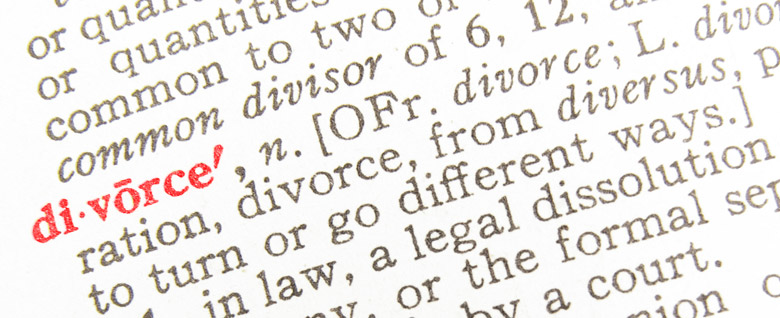There’s been major a cock-up in our divorce courts!
This significant administrative error may have wide reaching consequences, although officials have said they don’t know how many it will affect.
In short there are some people who will believe that they are divorced, when in fact, they are not. Their final paperwork may have come in the post. They may have been getting on with their lives – possibly even remarrying. However, the mistake means that their divorce may not be valid, meaning that they are still married to their former-spouse. This could cause all sorts of problems.
While the scale of the problem is still being worked out, our current leading family judge - the President of the Family Division, James Munby - has issued interim guidance for what needs to happen for those affected; more on that later.
So what exactly happened?
As I have poured over previously, our divorce laws have been around a long time now and many are of the belief that they are in need of modernising – including the introduction of the ‘no fault divorce’. However, as it stands, one quirk of our system is that no couple may submit a divorce petition to the court within one year of the date of their marriage. If a court receives such a petition, it should be rejected.
It would appear that, in some cases, this hasn’t been happening. Some of these petitions have been getting through the initial vetting process and ‘decree nisi’ (the provisional decree of divorce) and ‘decree absolutes’ (the finalising decree) have been granted. In other words, the couples were declared formally and finally divorced.
So if that’s the case, how can the divorce be effectively ‘torn up’?
Sadly, for those caught up in the mess, our laws dictate that even where a divorce petition has been successful and processed in its entirety by the court, unless all the necessary conditions have been met, the entire divorce is invalid – including the initial petition and both decree nisi and decree absolute.
What is worse, the problem cannot be resolved by amending the paperwork retrospectively.
This all came to light following the reform of the family court. HM Courts and Tribunal Service took the decision to create 11 divorce centres with the vast majority of uncontested divorces being considered by ‘legal advisors’ - rather than district judges - at those centres. Here in the North West our divorce centre is the family court at Liverpool.
We are currently awaiting the outcome of a full investigation and the issue of further information but for those divorces that are now clearly a problem some urgent guidance has been given.
For those invalid divorces which are still only in the early stages, a judge will simply dismiss the petition and bring the divorce proceedings to an early end. Anyone affected will be notified by letter and advised that their divorce and a new petition can start once the relevant time period has passed.
For those who are more significantly affected – those who have been granted decree nisi or a decree absolute in circumstances where it appears they do not meet the legal criteria for a divorce - they will be notified and given the opportunity to have their say on whether their decree is null and void, and whether the court can re-consider the divorce before any formal action is taken.
For those who have to start again with a new divorce the court will waive the usual payment of £550 for a new petition. It has also been suggested that that the new divorce will be processed as quickly as possible generally speedier than the original proceedings with a shorter timescale.
There is no doubt that these errors will have a devastating impact on some people, especially if they have acted in good faith believing that they are divorced and may have remarried or be about to remarry. Any plans for re-marriage would need to be put on hold if the date is fast approaching.
For those who have actually remarried – their marriage isn’t legal.
Not to put too fine a point on it – under these circumstances, they have ‘married’ a second spouse when they are still married to the first one and – unwittingly - have committed bigamy. The consequences of that fact - emotionally, financially and personally – don’t bear thinking about.
We can only assume that those affected with void petitions were people doing their own divorces and trying to keep costs to a minimum. Had a legal professional been involved, with expert knowledge of the divorce process, any issues which may invalid the petition would have been picked up.
For them – the real cost could be much higher than solicitors fees. It still pays in the long run to get good advice and the peace of mind that things will be done properly.



Comments